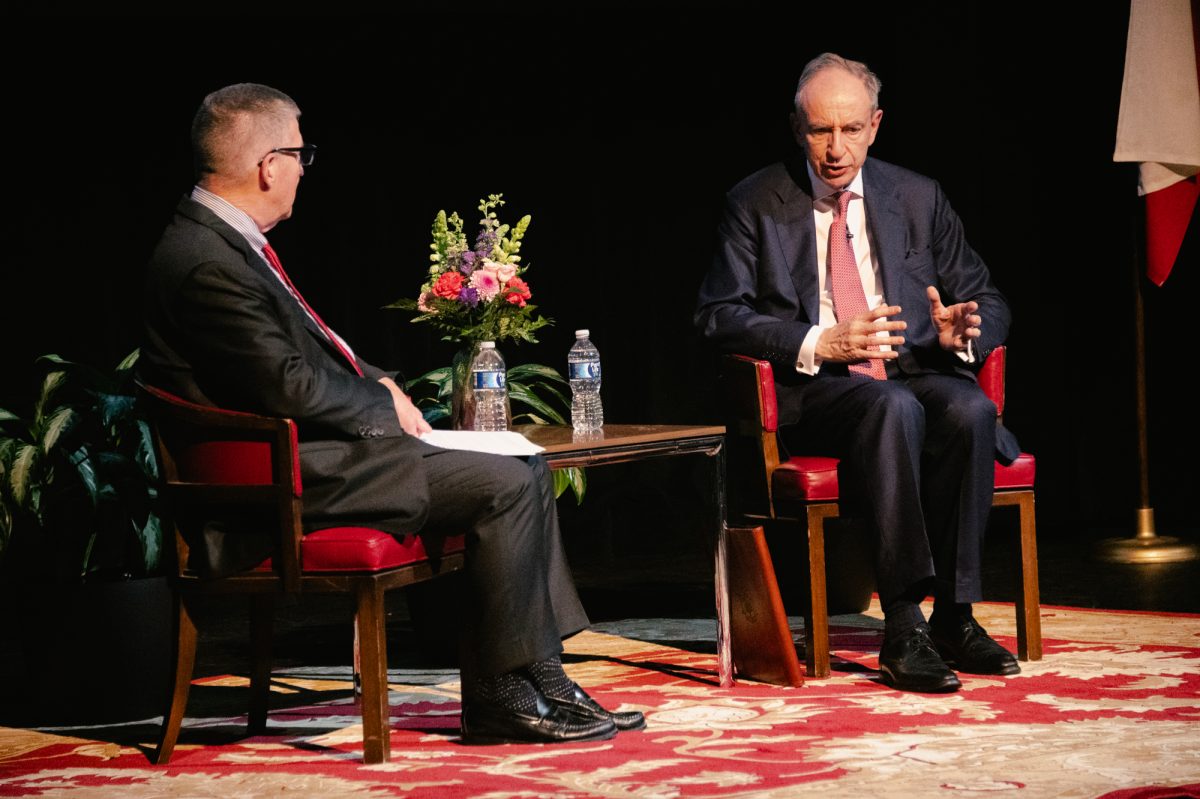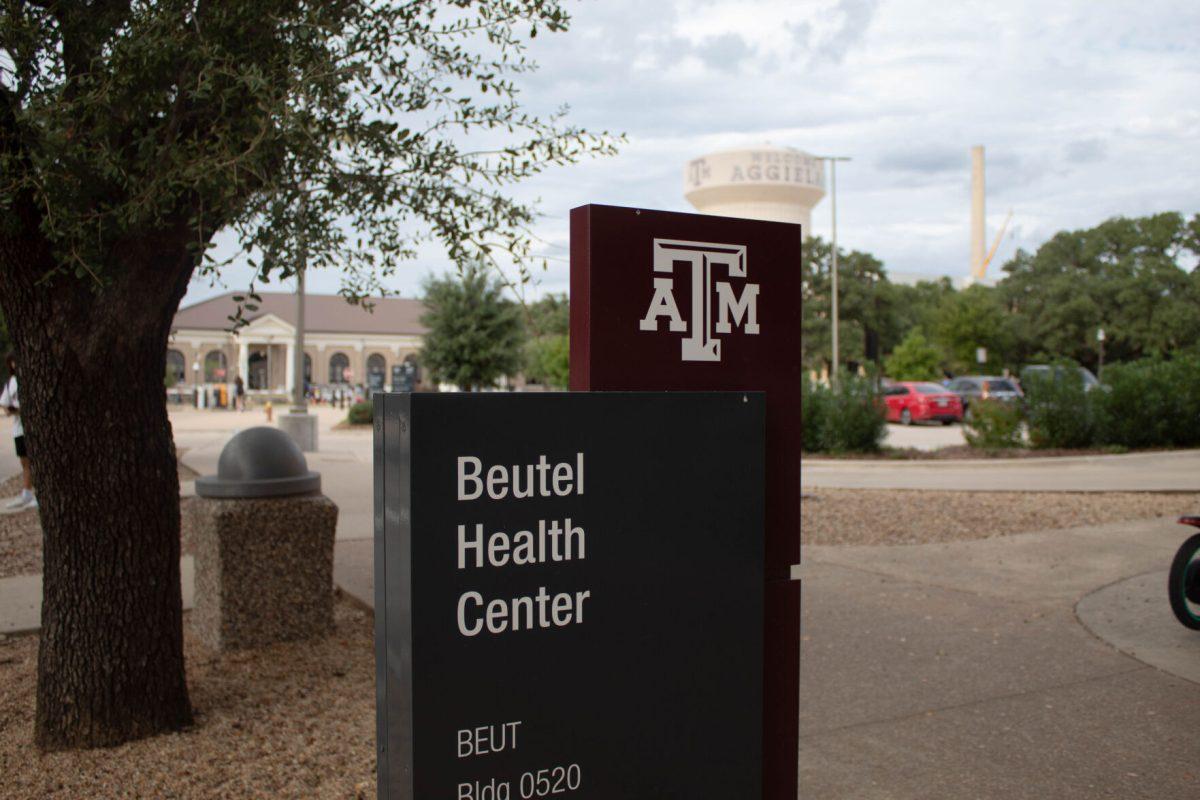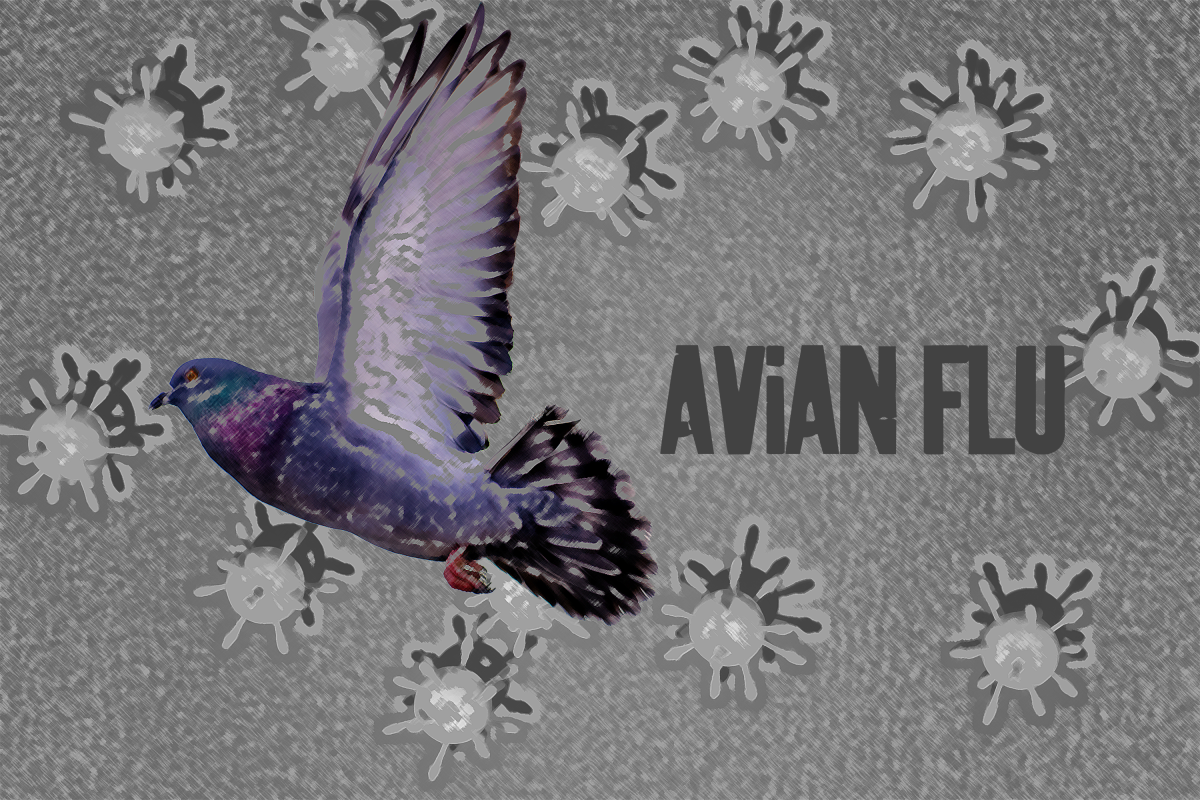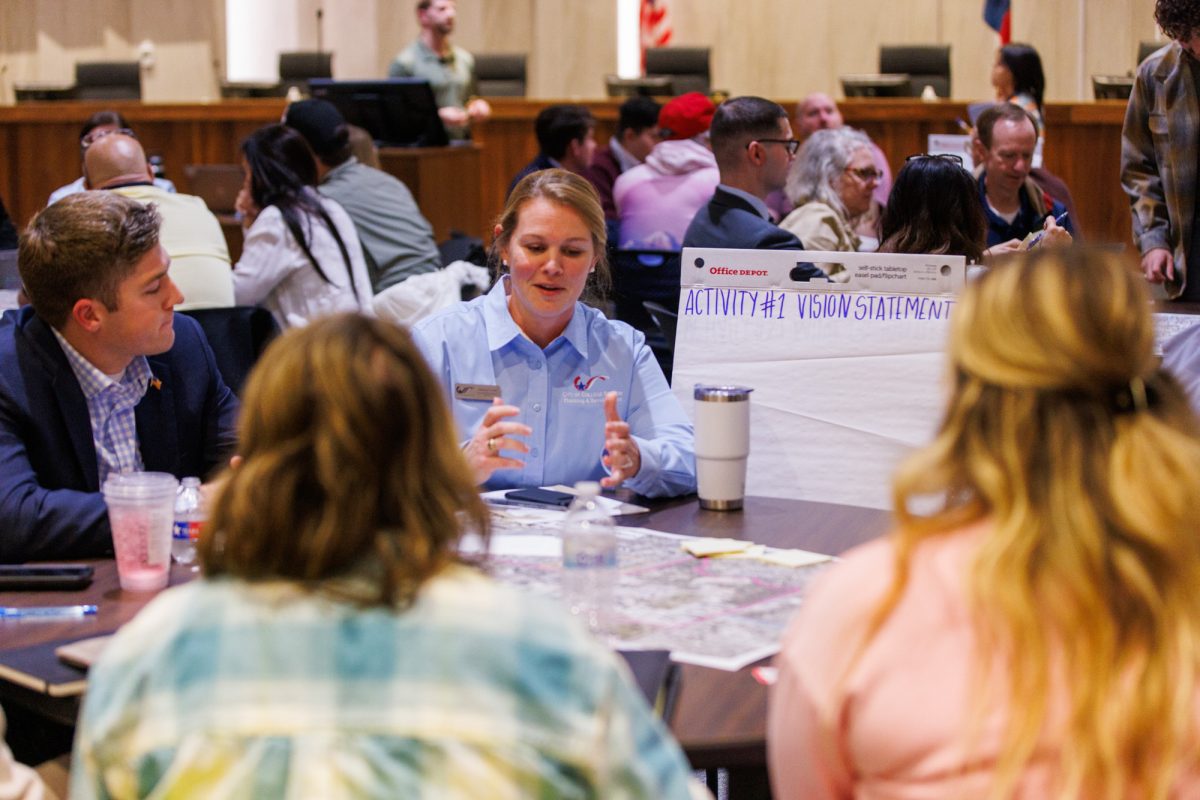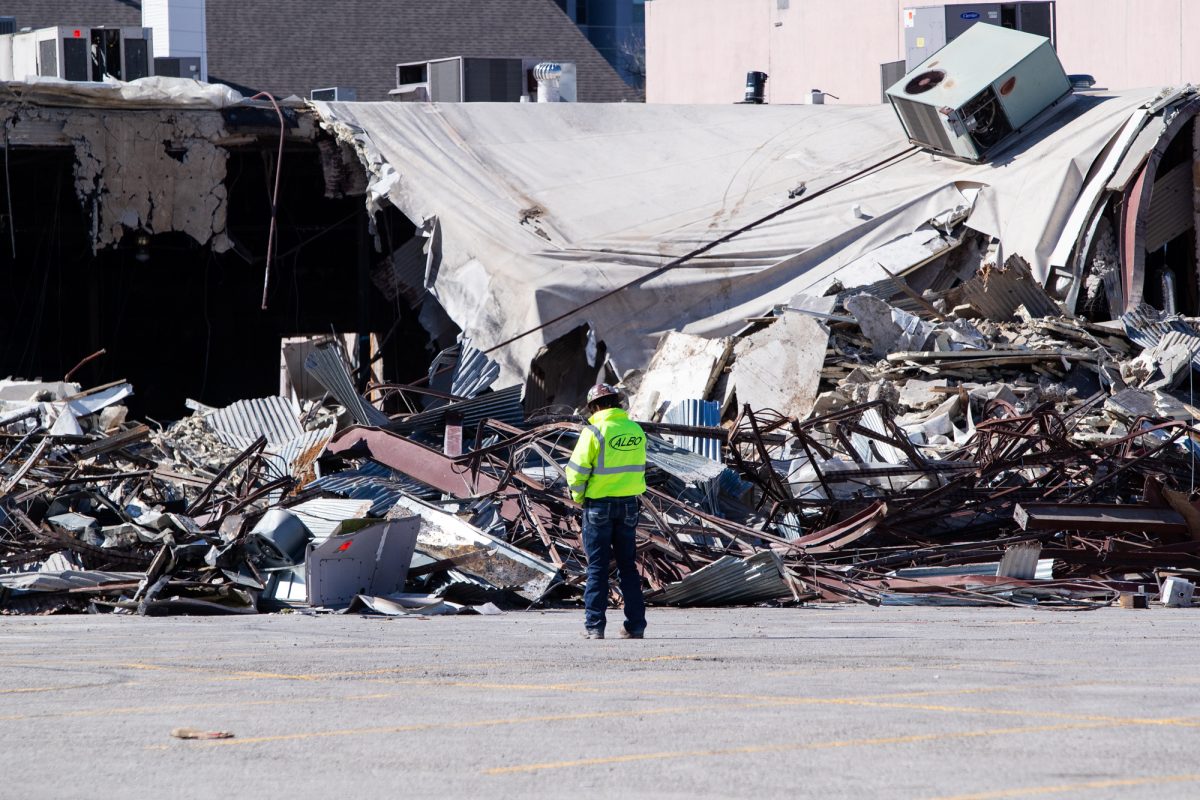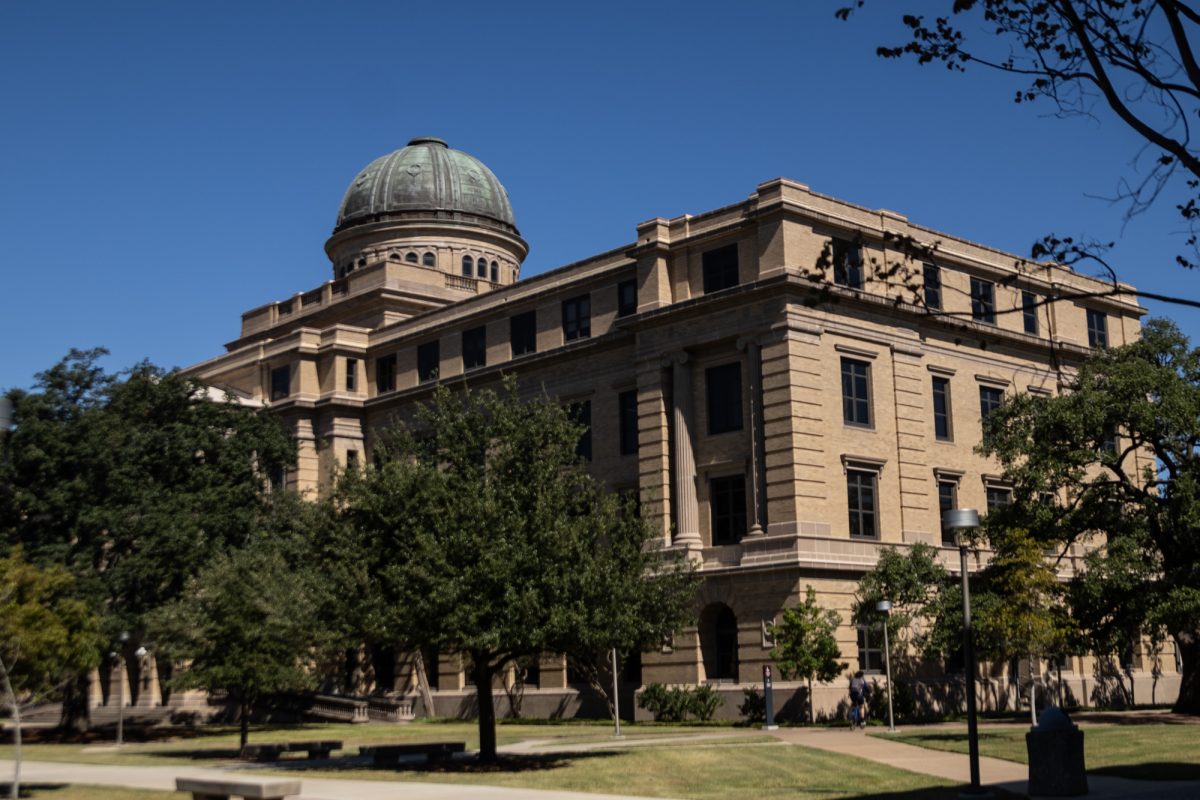At the center of Texas A&M’s campus stands the Memorial Student Center — a living memorial in honor of the Aggies who gave their lives in military service.
Standing beside the MSC is Rudder Tower — a concrete symbol of the climb a group of Army Rangers made under James Earl Rudder, Texas A&M’s 16th president, during World War II’s D-Day invasion.
Thousands of Texas A&M students walk through or past the MSC and Rudder Tower every day. Nine hundred of them, and 400 faculty and staff, are U.S. military veterans or active duty servicemembers.
Josh Ramirez, biomedical sciences junior, served in the Marines for six years and completed a combat tour in Afghanistan before choosing to come to school in Aggieland. He said his transition from military to civilian life was not sugar-coated and took patience.
“The biggest struggle for me was dealing with undisciplined people,” Ramirez said. “There’s a lot of ridiculous stuff out there and sometimes you just want to snap.”
Ramirez said the rough transition did not stop him from seeing college as a necessary component to reach his goals.
“I have a big dream,” Ramirez said. “Isaac Newton said, ‘The only reason I am this smart is because I stood on the shoulders of giants,’ meaning that he used knowledge passed on to him to be better. I want to be those shoulders for the next generation that comes up, and education for sure opens a lot of opportunity.”
Ramirez is an active member of the Biomedical Science Association and a member of Delta Company, an outfit in the Corps of Cadets designed specifically for combat veterans. Delta Company, or “D-Co.,” was created in 2006. Delta Company cadets attend on-campus classes, but most live off-campus.
Aaron Grichar, agricultural leadership and development sophomore and Delta Company member, served in the U.S. Army for three years. Grichar said the camaraderie within Delta Company restores the feeling of being part of a unified force.
“You get that sense of togetherness back with your actual squad or platoon,” Grichar said. “Even though we’re all separate branches you still have that same bond. We’ve not all necessarily done the exact same thing, but definitely things that make us able to relate to each other.”
Grichar said there was also a social aspect of the transition that opened his eyes to the fact that his life would no longer revolve just around the military.
“Not everybody cares that you’re a veteran,” Grichar said. “Everything you do in the military they pride you on it and recognize you for it. In the civilian world not everyone knows what you’ve done and been through.”
Blake Parsons, history junior and member of Delta Company, said the company is a link to veteran recognition, communication and involvement within the Corps of Cadets.
“In other schools there’s not a lot of connection between the vets,” Parsons said. “That’s something you get here at A&M, especially in D-Co. We want to get more involved with other young cadets and kind of mentor them in a way. We’ve all seen combat, so we know what’s really important and what’s not. We know what leadership qualities are best.”
Parsons served in the Army for five years, and said his involvement in student organizations made the transition process from military to student life easier.
Parsons is involved in the Big Event and Student Conference on National Affairs, or SCONA. Campus involvement is just one of the many aspects of the veteran-to-student-transition that A&M helps with, however Parsons said A&M offers broad financial assistance to veterans.
Texas A&M’s Veteran Resource and Support Center provides information and guidance to Aggie veterans and their families on admissions, academics and transition periods, including financial aid. The VRSC also works directly with Blinn Community College to extend resources and guidance to veterans who are looking to transfer to A&M.
Peter Michelena, biological and agricultural engineering sophomore and student worker at the VRSC, received two Purple Heart medals in his time in the Marines. He said finding organizations such as One Army and the Aggie Wranglers was an exciting and important part of his transition from U.S. Marine to Aggie student.
“I met with people at the VRSC and they showed me different organizations and gave me more of a direction,” Michelena said. “All the organizations that have taken me in have been awesome. It feels really good to be adjusting from the military while getting to be a part of something again.”
Environmental studies junior Amanda Lampley served in the U.S. Navy for three years and transferred from Blinn to Texas A&M in spring 2014. She said the veteran network and the atmosphere at Texas A&M have been helpful in her transition.
“I met a lot of great people,” Lampley said. “Other veterans definitely are there when I need someone to talk to. The spirit is definitely one of a kind, and I love it.”
Jonathan Gonzalez, urban and regional planning sophomore and member of Delta Company, served in the Marine Corps for four years and said the friendliness that surrounds Texas A&M automatically sets it apart from other schools.
“I say ‘howdy’ to just about everyone I come across, and when people get all excited and say it back with a big smile — I love it,” Gonzalez said.
Lampley and Michelena said there are some parts of veteran life that inevitably set them apart from other students mentally and academically.
Lampley said she now has an older, more mature spirit, while Michelena said coming back to school and seeing notes being typed on laptops instead of being handwritten was one of the things he had to get used to.
Along with getting accustomed to new academic advancements, Grichar and Parsons said ways of communication in the civilian world are much different than in the military.
“Once you get up to a certain rank and someone is doing something wrong, you address it,” Parsons said. “It’s not as bad as to be confrontational, but in the civilian world you kind of have to bite your tongue. It’s totally different.”
For Chris Emler, agricultural leadership and development freshman and Delta Company member, fatherhood adds another facet to life as a student veteran.
Emler served in the U.S. Navy for four years and works fulltime while taking classes at A&M and raising a 2-year-old son.
The balancing of these things, Emler said, is stressful but worth the effort.
“It gets stressful at times but the military definitely had a big part in preparing me to multitask and get things done,” Emler said. “It is hard on my family sometimes but everyone’s behind me, and they support me as much as they can.”
The next step
November 10, 2014
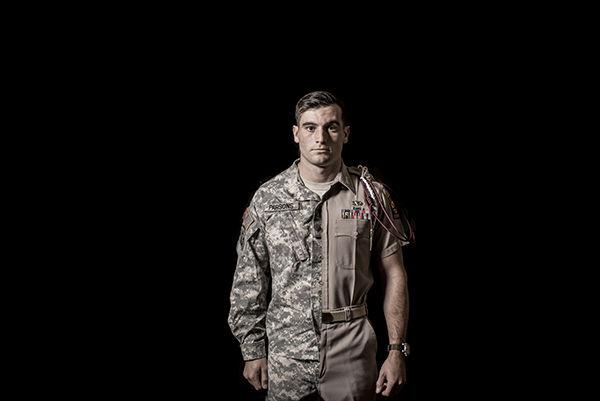
Tanner Garza — THE BATTALION
Blake Parson, history junior, served for five years before coming to A&M.
0
Donate to The Battalion
$810
$3500
Contributed
Our Goal
Your donation will support the student journalists of Texas A&M University - College Station. Your contribution will allow us to purchase equipment and cover our annual website hosting costs, in addition to paying freelance staffers for their work, travel costs for coverage and more!
More to Discover




